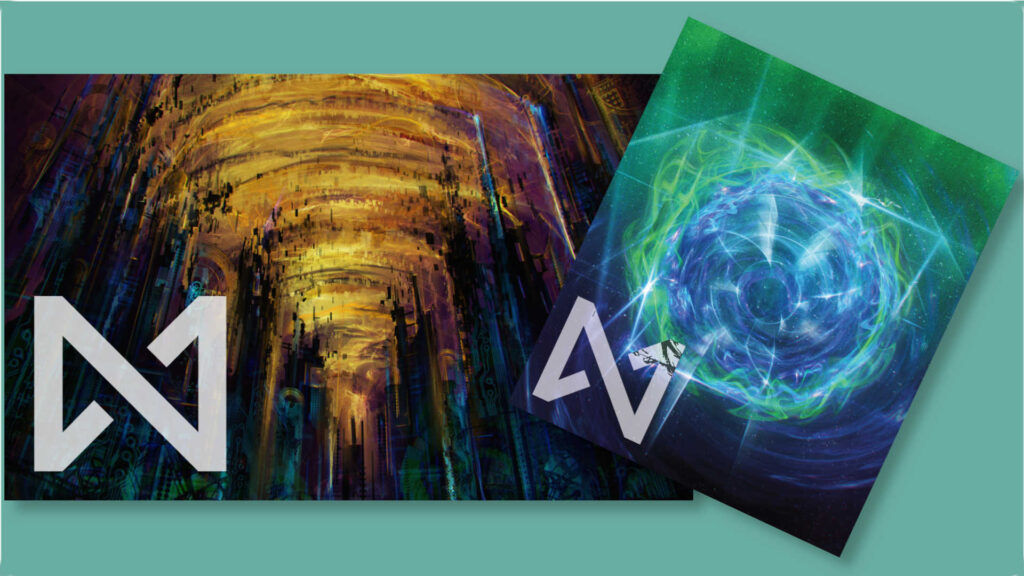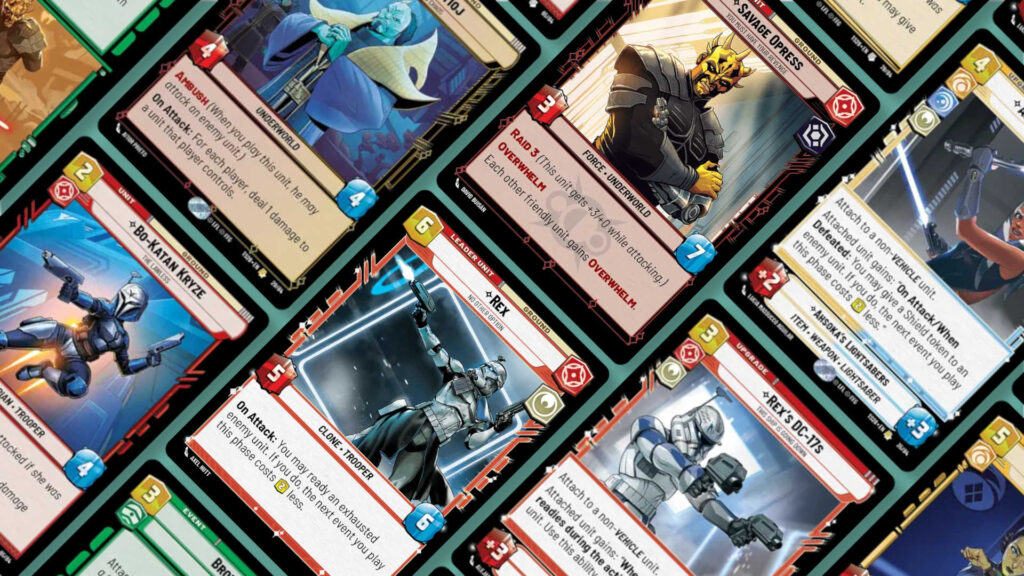Image courtesy of Cygames
Ever since Hearthstone burst into the scene, the digital CCG market experienced a boom, where developers wanted a slice of the pie. Since then, countless hours have been spent not just by me, but other players using Hero Powers, evolving in Shadowverse, dry passing in Gwent, chasing the competitive leaderboard on Legends of Runeterra, or simply just playtesting on Magic: the Gathering Arena.
Today, I wanted to revisit some of CCGs and see where they are now.
Table of Contents
ToggleThe Elder Scrolls: Legends
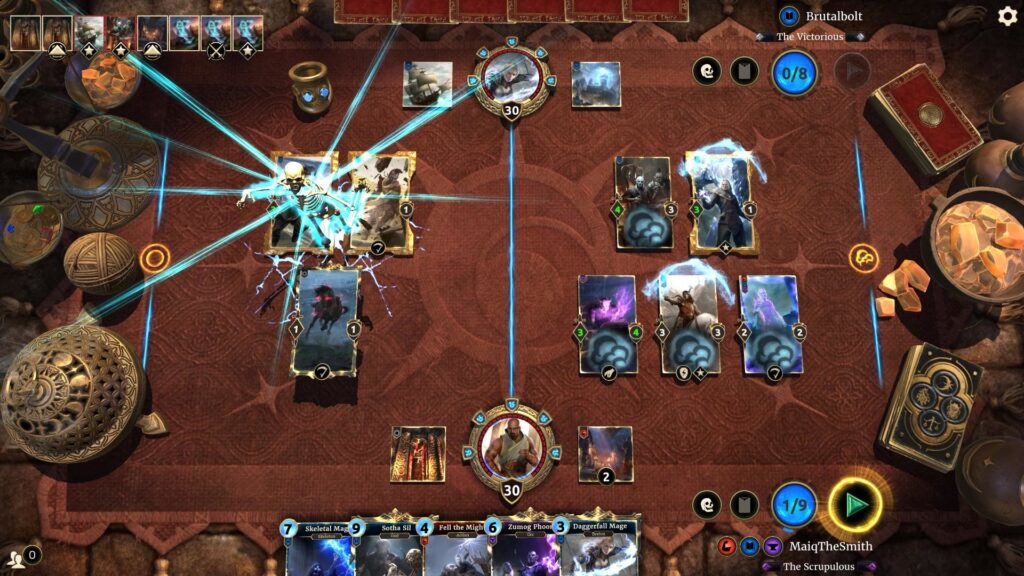
Image courtesy of Bethesda Softworks and Sparkypants Studios
Set in The Elder Scrolls universe, The Elder Scrolls: Legends features two lanes for players to deploy units. Interestingly, one of these play areas is called the Shadow Lane, where all creatures on it cannot be targeted by attacks for a turn. The game also features a rune system, where at certain health breakpoints (5 health), one rune is lost and that player draws a card, sometimes with “when drawn” effects.
Unfortunately, after five years in maintenance mode, Servers were permanently shut down on January 30, 2025. However, there’s been some effort to create a fan-made version of the game, where players can currently match up against bots.
Gwent: The Witcher Card Game
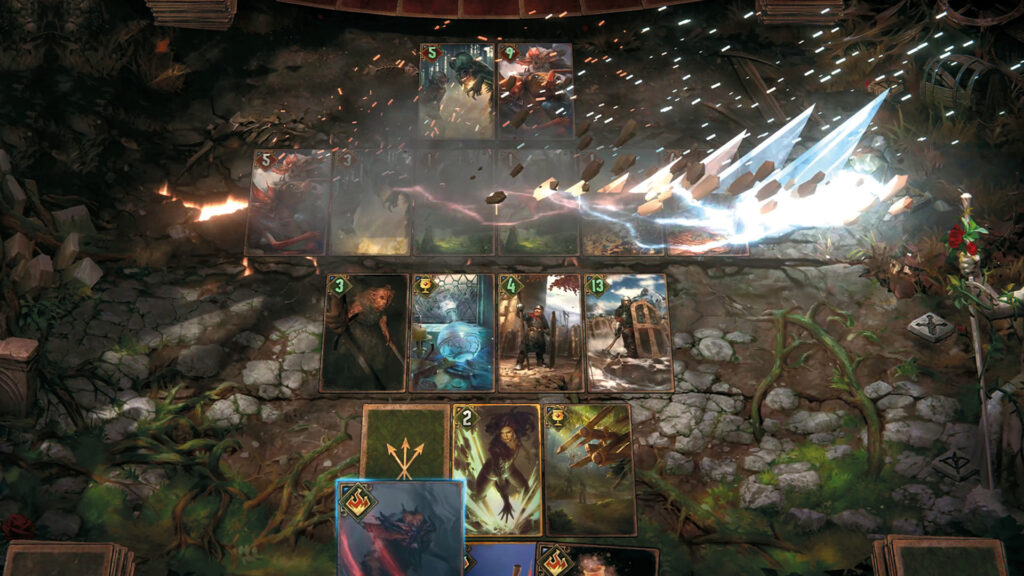
Image courtesy of CD PROJEKT RED
With the controversial decision to change the game’s core system — from three lanes to two — Gwent has continued to thrive for three years until developers CD PROJEKT RED decided to sunset the game.
Gwent remains playable, however, and the devs left one final gift for its dedicated community: Gwentfinity, wherein The Balance Council, composed of active players, gets to take a vote on a monthly basis to adjust the power or provisions of certain cards to give lesser-played cards a chance to see the sunlight. Through this, Gwent still has an ever-changing metagame, even years after official support has ended.
With Witcher 4 on the horizon, only time can tell if Gwent will come back in any way, shape, or form. The standalone Gwent game was the card game I had the most hours on, judging from my Steam history, so I’m glad it continues to survive through its community.
Shadowverse
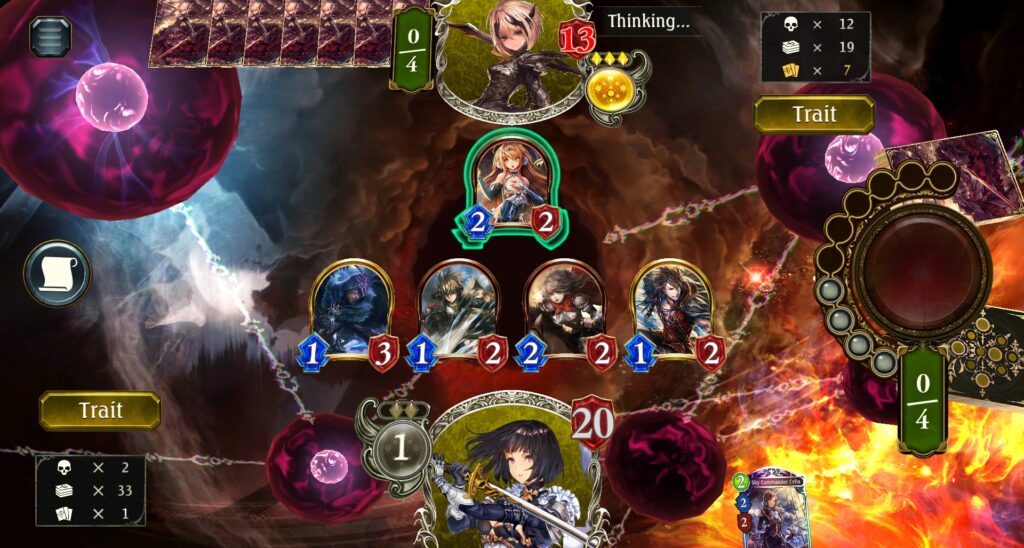
Image courtesy of Cygames
Cygames’s digital CCG was released not long after Hearthstone broke through in the digital card game scene. This anime-styled game draws heavily in creature-based combat, and adds a new layer to it through the Evolution mechanic, which bestows units with additional stats and even effects.
With a host of characters to draw upon, owing to the extensive intellectual property of Cygames, Shadowverse still continues to exist in the digital space, with a sequel, Shadowverse: Worlds Beyond coming this June. As a former organizer of the local Shadowverse community, this new era of Shadowverse — specially with all the new IPs of Cygames — is exciting. Shadowverse: Worlds Beyond is definitely the digital CCG to watch for in 2025.
Warhammer 40,000: Warpforge
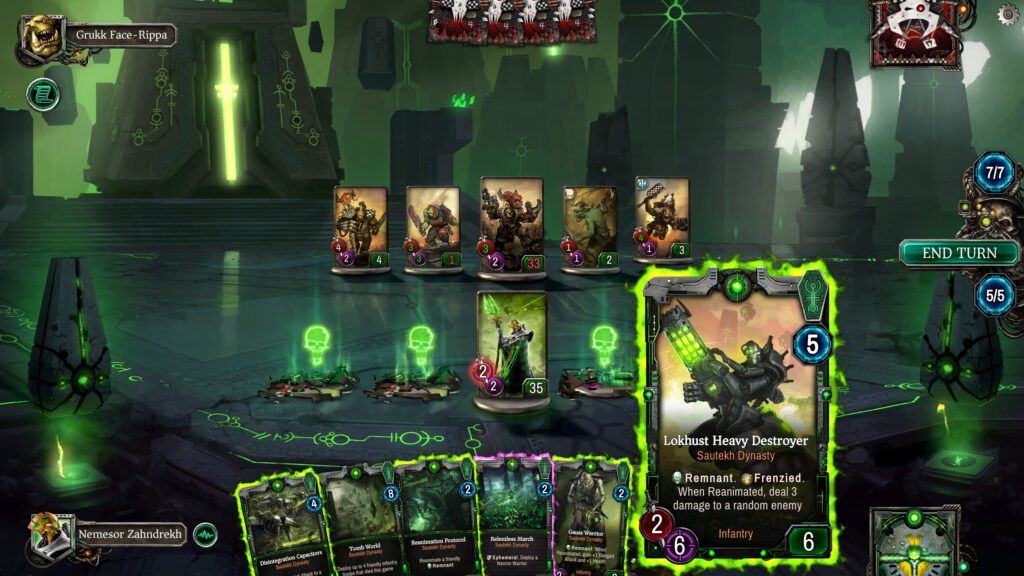
Image courtesy of Everguild Ltd.
The Warhammer 40,000 universe has no lack of games to choose from. Warpforge is the latest to come out from this franchise, but has failed to grab the attention of card game enthusiasts en masse.
Players can play as the various factions in the 40K setting, all with their unique mechanics and flavor, all with a unit-based combat with the goal of reducing the opposing commander’s life to zero; there’s nothing new here.
Though the game was only released in early access in late 2023, a recent update removed the starter decks from the free tracks, to the premium campaign. This means new players can only have access to one starter deck, and will need to pay money to unlock the others. This was compensated for by more cards being available through the free unlockables track per faction, but this certainly feels like a blow to new players and a desperate cash grab this early in the game’s lifespan.
Eternal Card Game
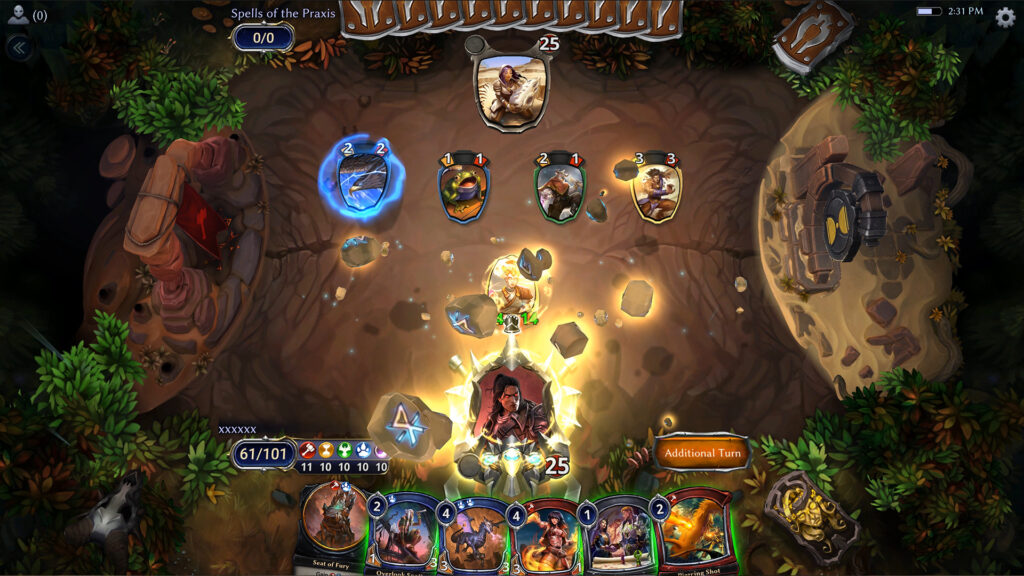
Image courtesy of Dire Wolf Digital
One of the oldest games in this list, Eternal still has a dedicated community, with tournaments firing off every so often. The most recent one was even attended a former World Champion!
New cards are still released on a weekly basis, though there hasn’t been a full expansion in a long time. For newer players, there’s still a massive backlog of expansions to purchase with no discounts, but formats such as Expedition make the transition a little easier.
But it must be said: players believe the game is in maintenance mode, so we’ll have to see what Dire Wolf Digital plans for Eternal.
Legends of Runeterra
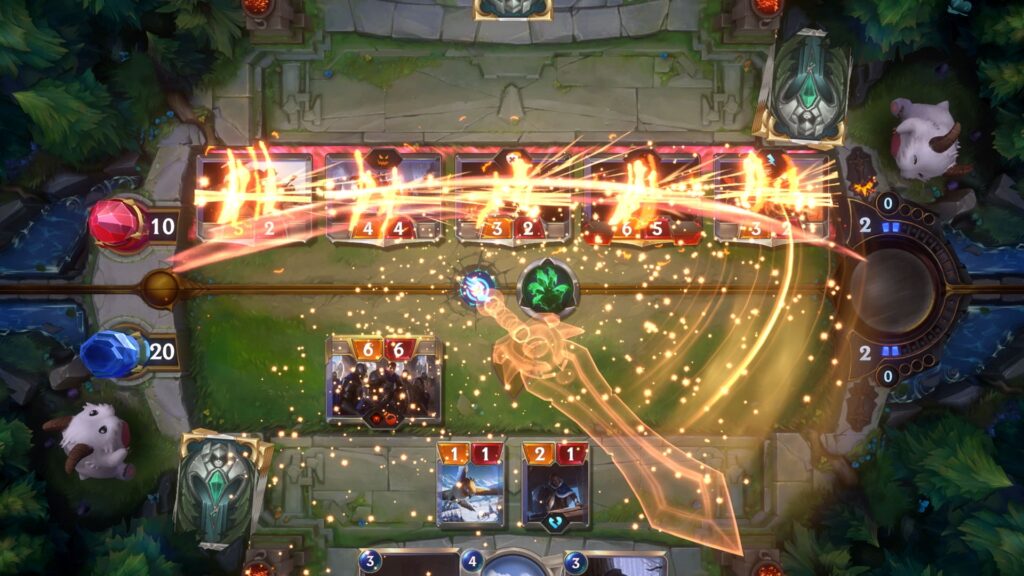
Image courtesy of Riot Games
Riot’s breakout digital CCG enjoyed early success, specially due to its massive franchise. Perhaps its due to it being so Free-to-Play friendly, or just Riot’s penchant for axing projects prematurely, that Legends of Runeterra might have just failed to justify its place in the Riot ecosystem. I used to play Legends of Runeterra on a professional basis, so it’s sad to see the card game be axed, as it definitely had the machinery to match up against the leading games at the time.
Since early 2024, support for PVP content has officially been halted, with resources being channeled into single-player content. It’s still a great game with tons of polish, should you wish to try out the single player content the game has to offer.
Where Do We Go From Here?
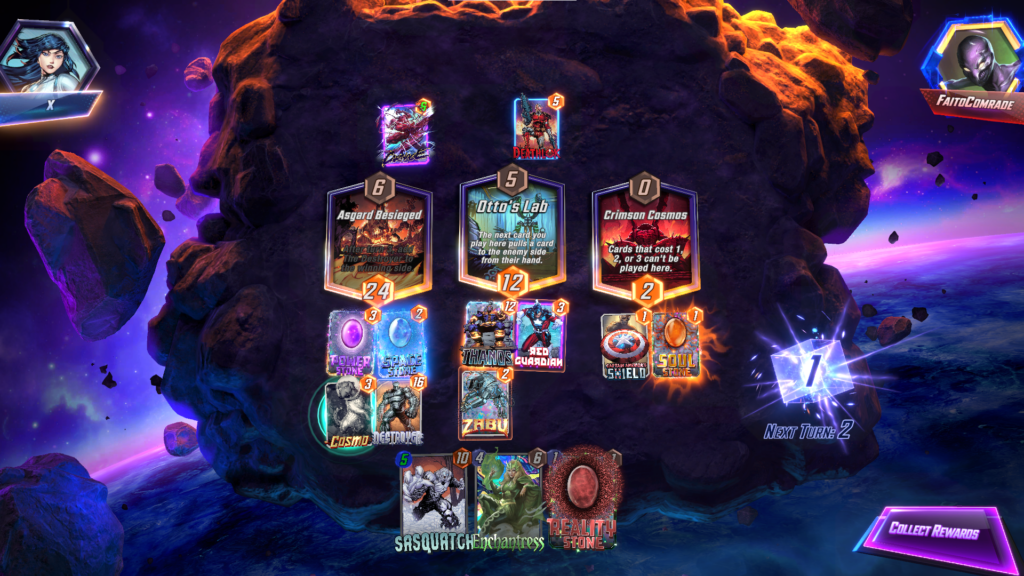
Image courtesy of Second Dinner
The state of digital CCGs feel dire, with most of the old-time games going into maintenance mode, or being completely discontinued. The current trend points to massive IPs capitalizing on the card game model, with Pokémon TCG Pocket leading the pack, and Marvel Snap at a far second. The space is also consistently shifitng towards roguelike deckbuilders like Slay the Spire and Balatro for those who want a single player experience, and autobattlers such as The Bazaar or even Teamfight Tactics for players that still have a competitive itch.
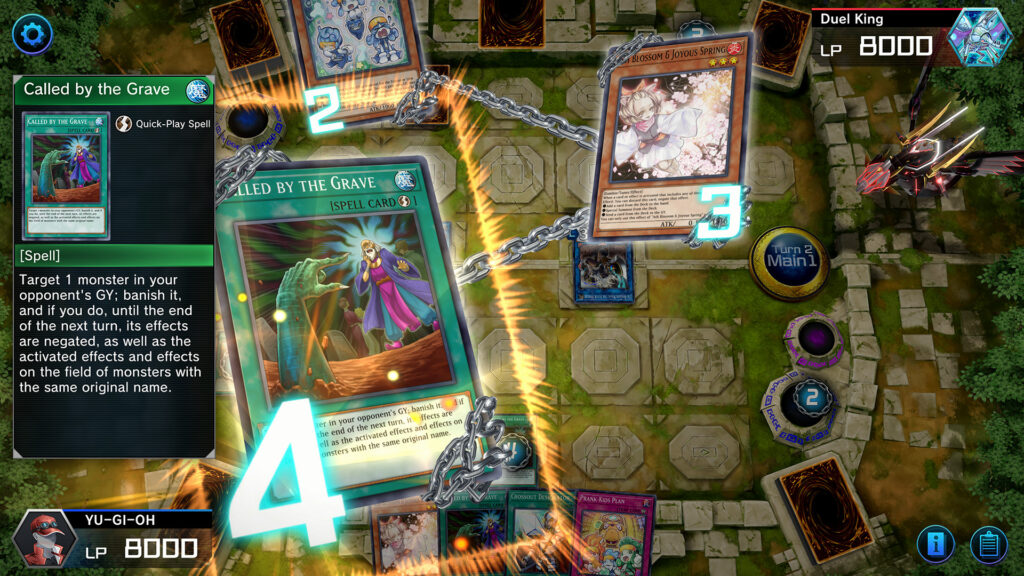
Image courtesy of Konami
The top remaining digital card games are literally the big three: Magic: The Gathering Arena, Pokémon TCG Live, and Yu-Gi-Oh! Master Duel, all with official support and serves as a great complimentary tool for paper players, or simply as a pasttime for others. Hearthstone continues to be a significant presence in the digital-only space, as it now gives out more rewards and incentives for old players to come back.
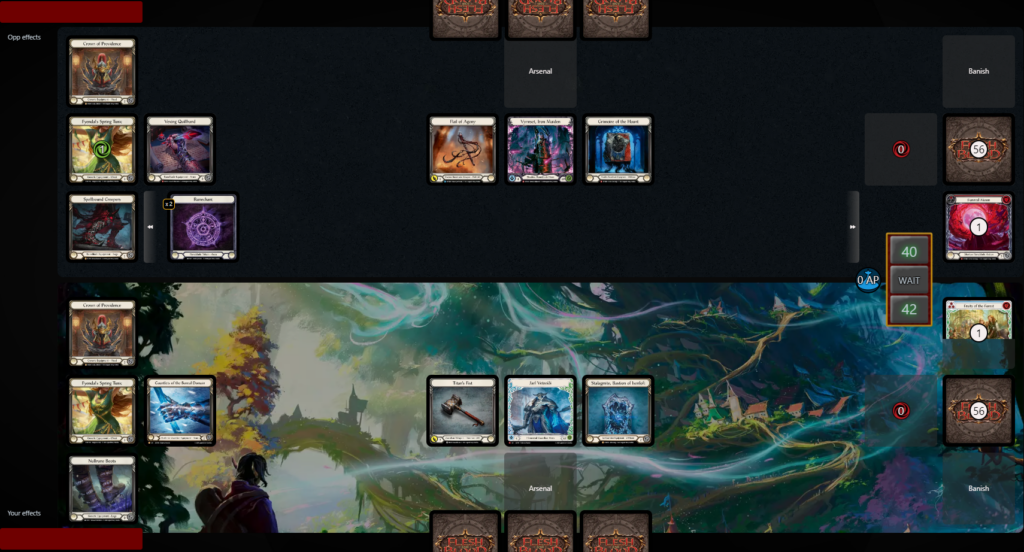
Image courtesy of Legend Story Studios
One more space to consider are digital simulators for physical card games. Netrunner and Flesh and Blood have online fan-run clients in the form of Jinteki and Talishar, where players can test out their decks to prepare for tournaments. In the case of Jinteki, official tournaments are even ran in the client! With that said, both are only really functional on desktop, however, and a large portion of digital CCG players enjoy the mobile experience.
With the much-anticipated release of Shadowverse: Worlds Beyond, there remains a glimmer of hope for traditional digital-only CCGs in the market, though it now has a lot of competition. It’s definitely bittersweet to see the genre suffer a steep decline, but it seems players are unwilling to shell out the same amount of cash for digital-only games with similar monetization models as physical card games, where players can offload cards when they choose to do so.
To read up more on the hyped-up release of Shadowverse: Worlds Beyond, read our primer on Shadowverse here. Meanwhile, The Bazaar has pulled back on its monetization model making it more F2P-friendly. Finally, even Marvel Snap, which has historically suffered problems due to card acquisition, has released a new system to make obtaining specific cards more feasible.

